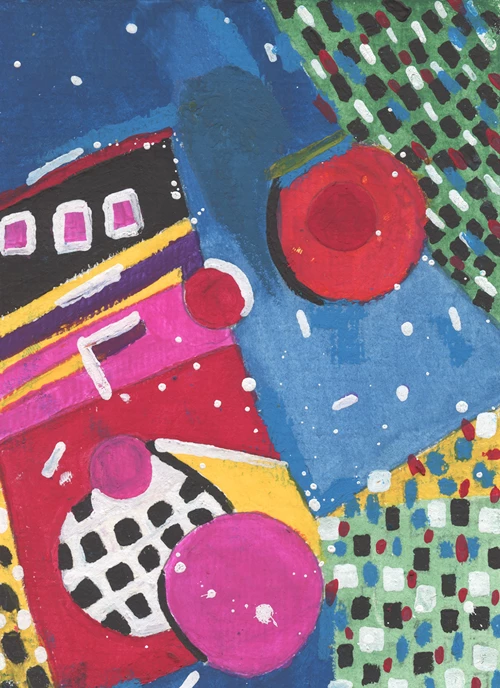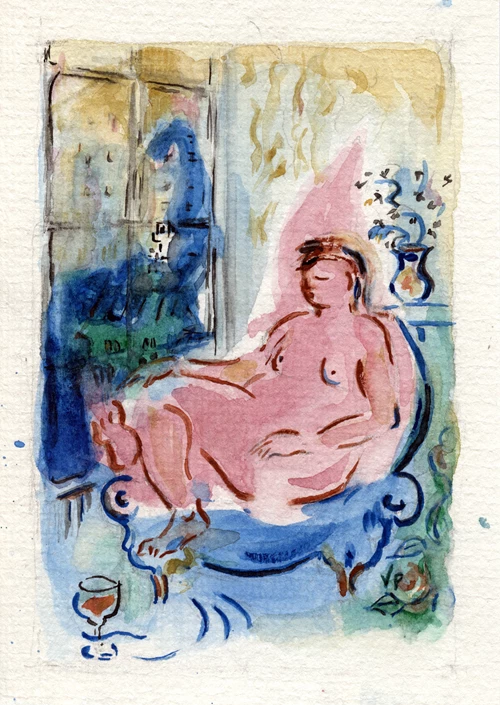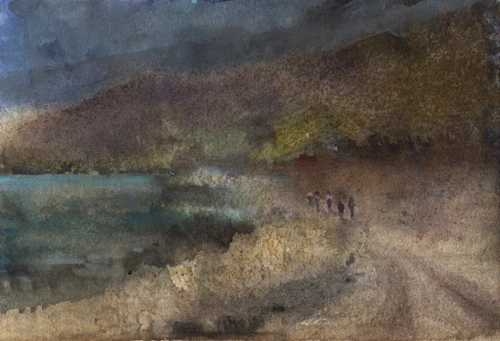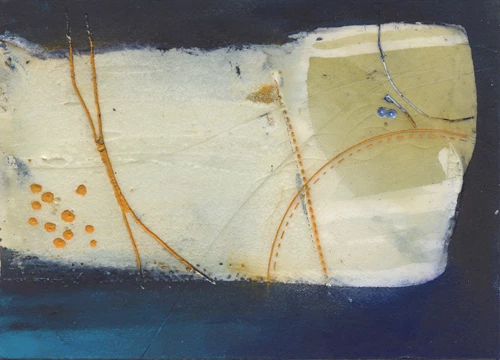Art on a Postcard International Women’s Day Auction - Curated by Women in Art
27 FEBRUARY 2024 - 12 MARCH 2024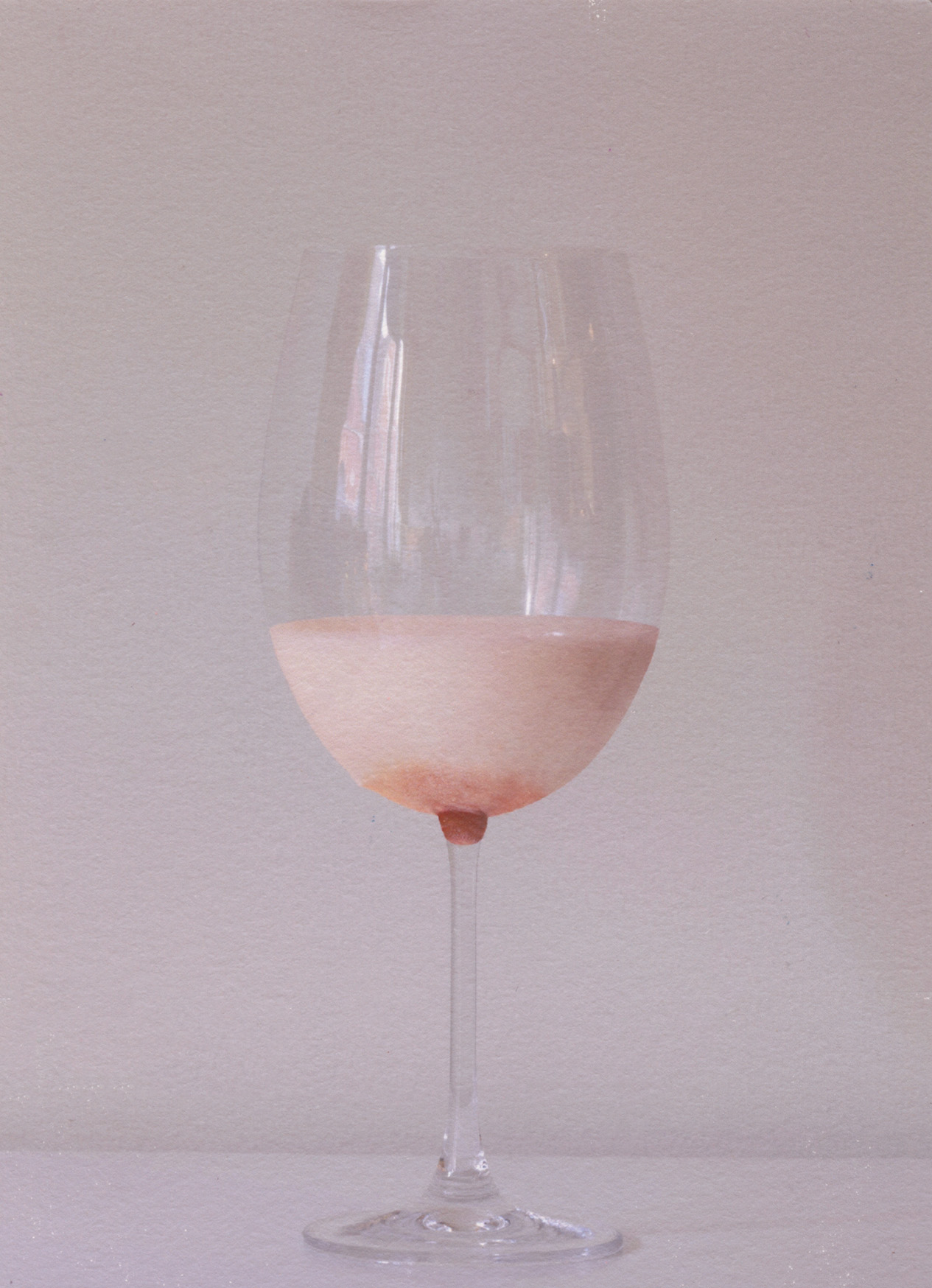
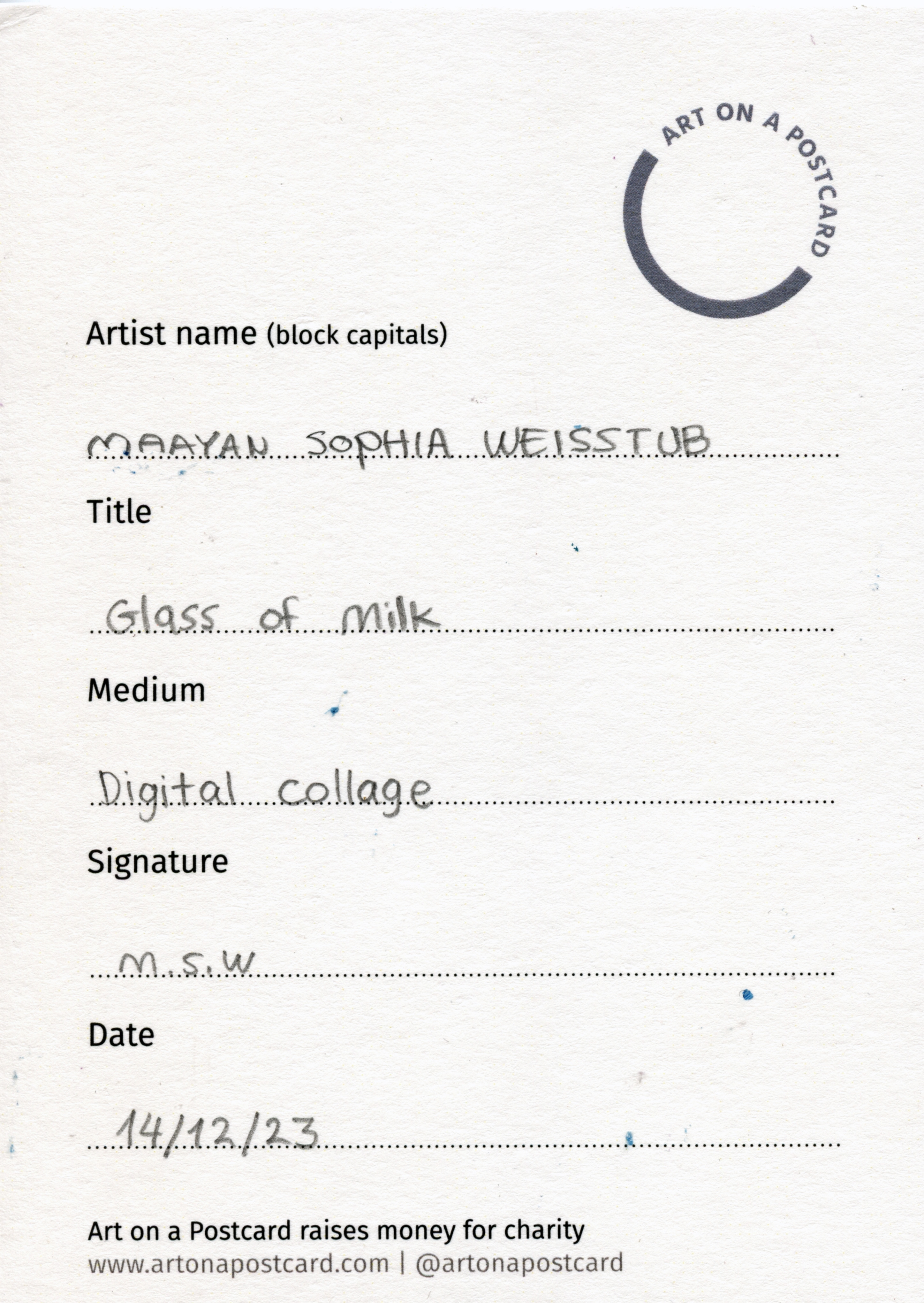

 Add to wishlist
Add to wishlist
1. Maayan Sophia Weisstub
Glass of milk
Digital collage on paper
2023
A6 (10x15cm)
Original Artwork
Signed on Verso
This auction is raising proceeds for The Hepatitis C Trust
Curated by Women in Art
This auction has now ended
Notes
About
Multidisciplinary artist, living and working in the United Kingdom
Education
2021
Royal College of Art
Solo Shows
2022
Poum Gallery, Lyon, France
2021
Mnḗmē, Omer Tiroche Gallery, London
2019
Alliance House, Jerusalem, Israel
Group Shows
2023
Tom of Finland Festival, The Standard, London
Women in Art Prize, Roundhouse, London, United Kingdom
The Self-Portrait Prize Online Exhibition, Artsy
No Future, No Cry, Galeria Alfaia, Loule, Portugal
No Future, No Cry, Centro Cultural De Lagos, Lagos, Portugal Fetish, Mama, London
2022
Marianne Brandt Award, Industrial Museum, Chemnitz, Germany
Tom of Finland Festival, Second Home, London, United Kingdom
Art on Postcard x Go with Yamo, Koppel X, London, United Kingdom Next at Christie's, London, United Kingdom
Brixton Art Prize, The Department Store, London, United Kingdom
Sleep, Museum of the Home, London, United Kingdom
Awards
2023
Shortlisted, John Ruskin Prize
Longlisted, Visual Art Open
Finalist, Women in Art Prize
Longlisted, Ruth Borchard-Self Portrait Prize
2022
Nominated, Marianne Brandt Award
Shortlisted, Zealous Amplify
Longlisted, BBA Artist Prize
Outset Contemporary Art Fund
2021
Shortlisted, Robert Walters Group UK New Artist of the Year Award
Statement about AOAP Submitted Artwork
What do we understand by the breast? It is the eternal object of fascination but at the same time an empty signifier, claimed and reclaimed across time and space to capture the projections of the moment. The breast, and what it contains, is an ever-present feature of folklore; been set centre-stage by art and artefact; it has been adopted – or perhaps embraced by post Freudian theories of infant life. The Mastos vessel of ancient Greece possessed a ritual significance extending beyond its everyday function as a drinking vessel. Romulus and Remus, the mythical founders of Rome, were suckled by a feral she-wolf after Amulius, King of Alba Longa, ordered their death. According to one origin story claims, the champagne coupe was modelled on the embonpoint of Marie Antoinette, the Mistress of Excess. The story, though – like much that has been told about her – is almost certainly apocryphal. But like the best tales, it isn’t whether it is true that matters, but whether it can be believed. Psychoanalytical theory, firmly wedged in the speculative and the imaginary, has too found use for the breast and what it contains. Melenie Klein, one of the first psychoanalysts to concentrate on conceptualizing the internal world of the infant, embodied the newborn’s experience of primal rage and frustration in its relationship to its mother’s milk – the good breast which provides, and the bad breast which does not. A convincing and convenient dichotomy, not unlike society’s relationship with the breast. At first blush, Glass of Milk suggests the quotidian. But then closer scrutiny prompts a pause; the image offers itself as the metaphorical container of infinite projections. As with much of her oeuvre, Weisstub repositions everyday objects into commentary on collective perceptions. Glass of Milk could be anything that the viewer would wish it to be, a Rorschach test of the collective imagination. Or, perhaps, it may be nothing at all. Just a pink-tinged glass of milk with a convergence at its bottom.
You must not reproduce, duplicate, copy, sell, resell or exploit any works. In doing so, you endanger our relationships with artists, and directly jeopardise the charitable work we do.
